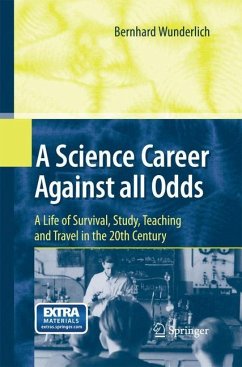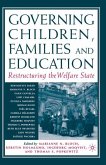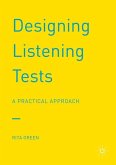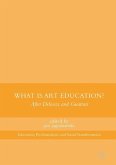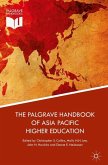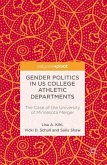Today is Sunday, June 17, 2007. Father's Day. Naturally, the obligatory, carefully selected cards, phone calls, and small gifts arrived from the children and grandchildren. Best wishes for Father's Day were also the first words in the morning from Heidel, my wife of 54 years, although for many years I had made the comment: "I am not your father. " But, in the frame of my life's experiences th th in the 20 century, as I intend to summarize them over the next few years, the 17 of June has much deeper significance. This was the day in 1953 when we finally fled from our life of oppression which had lasted 20 years. Two successive dictatorships, one of Hitler and the other of Stalin, caused the most horrific slaughter of civilians and soldiers, eclipsing all prior history. During these first years of my life, I was plainly lucky to survive. After this day, I had a much better chance to experience the freedom needed to lead a life of creativity, satisfaction, and ultimately prosperity,all directed largely by our own decisions. th The 17 of June 1953 was a Wednesday. I stayed in the apartment of my parents in my hometown of Brandenburg, in the German Democratic Republic (GDR), the former Russian occupied zone of Germany. The summer vacation of the Humboldt University in East Berlin, some 40 mi further east, had just started. But, I was alone with my father, "Vati.
"I found reading this autobiography of the polymer chemist Bernhard Wunderlich an extremely humbling experience. As a UK babyboomer who was a child in the 1950s and a teenager in the 1960s, I found myself counting my blessings, as I read about someone born in Brandenburg, Germany, in 1931. (...)
Wunderlich's long and distinguished career in research and teaching involved him in extensive travel in the US and around the world, including periodic return visits to Germany. This book reflects his great love of travel, including a deep interes in European and Mediterranean antiquities. (...)
I found the book enthralling and would recommend it to young chemists of today. When we are tempted to complain, it is salutary to read about someone, who despite early hurdles and difficulties, had the determination to succeed and ended up living a very full life, supported by a wide network of friends and family."
(Lucy Mitton, Chemistry World, Royal Society of Chemistry 2010)
Wunderlich's long and distinguished career in research and teaching involved him in extensive travel in the US and around the world, including periodic return visits to Germany. This book reflects his great love of travel, including a deep interes in European and Mediterranean antiquities. (...)
I found the book enthralling and would recommend it to young chemists of today. When we are tempted to complain, it is salutary to read about someone, who despite early hurdles and difficulties, had the determination to succeed and ended up living a very full life, supported by a wide network of friends and family."
(Lucy Mitton, Chemistry World, Royal Society of Chemistry 2010)

